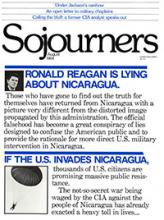David MacMichael began working for the Central Intelligence Agency in March 1981 on a two-year contract. A major focus of his work was gathering evidence on the alleged arms flow from Nicaragua to El Salvador. MacMichael's investigation exposed as false the primary tenet of the Reagan administration's justification for its policy against Nicaragua. His contract was not renewed.
Read the Full Article

Already a subscriber? Login
